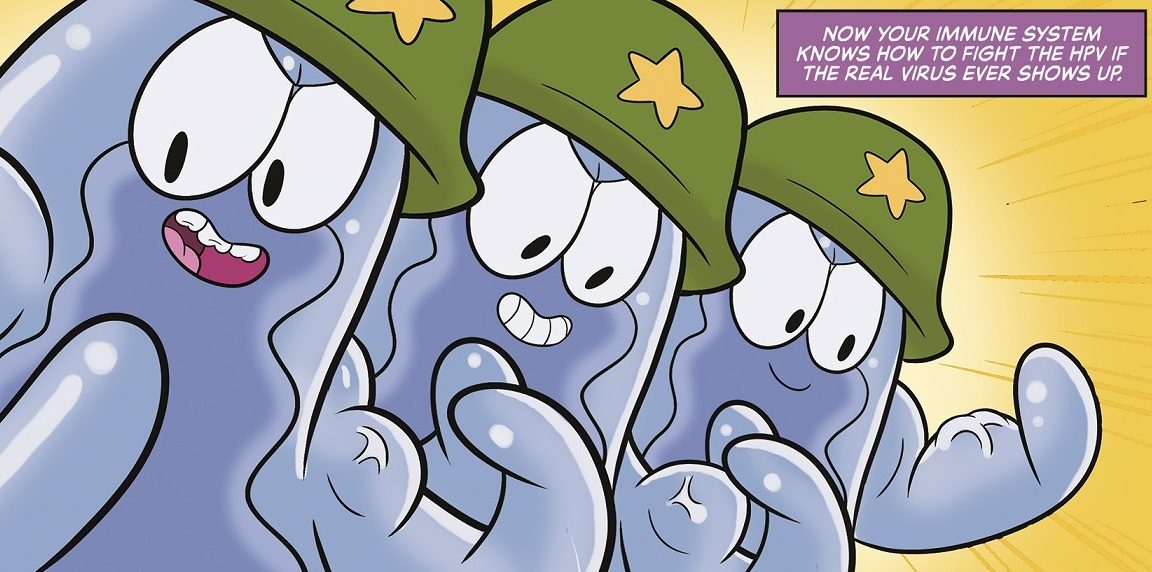Ami Bhatt, MD, PhD, Stanford's director of global oncology, is serious about reducing high cervical-cancer rates in Nigeria. And to do that, she's enlisted the imaginative assistance of an educational comic book.
Formally released over the weekend, the comic will commence physical distribution in Nigeria beginning in early 2019.
Global Oncology, Inc., a non-profit that Bhatt co-founded in 2012 with UCSF oncologist Franklin Huang, MD, PhD, is responsible for developing the comic. Z2 Comics, a small Brooklyn-based graphic novel company, provided artists and writers for the project under the direction of the organization's steering committee.
Cervical cancer is comparatively rare in high income countries, where PAP smears are routinely used as screening tools. But it's the first- or second-most-prevalent cancer in developing countries. Yet it doesn't have to be that way.
Almost every case of cervical cancer is caused by human papillomavirus, the world's most common sexually transmitted infectious pathogen. The cancer-promoting virus's prevalence is at its highest in sub-Saharan Africa.
Fortunately, an HPV vaccine exists -- and it works. It's more than 90 percent effective at preventing HPV infection if it's administered before a young woman has been exposed to the virus. But it's not cheap: In the United States, the price tag reads roughly $250-500 for a series of two to three injections over the course of, respectively, six to twelve months, depending on the recipient's age at the time of vaccination.
Nigeria not only is the African continent's most populous country but boasts the third-largest youth population in the world after India and China, with 90 million of its residents under age 18. That puts Nigeria at special risk for HPV transmission and consequent elevated cervical-cancer rates. In 2017, the World Health Organisation reported that the number of Nigerian women suffering from cervical cancer annually totaled 14,089, making it the second-leading cause of cancer deaths in that country.
This plus several additional factors make Nigeria an ideal target for outreach, Bhatt told me:
The rest of West Africa follows a lot of what Nigeria does. Also, their current minister of health is a gynecologic oncologist, so that makes this a particularly opportune time to pursue this priority. Finally, Nigeria, with its large population and bargaining power, may be able to negotiate better pricing of the HPV vaccine, which could then allow for bulk purchasing of the vaccine by additional neighboring countries.
The comic book whimsically pulls its readers into a young Nigerian's world, tactfully revealing how cervical cancer results from HPV infection and affably explaining how vaccines train our immune systems to resist that infection. Bhatt credits two Stanford resident physicians from Nigeria -- Olufolarin Oke, MD, and Chika Nwachukwu, MD, who sit on the steering committee overseeing the development of the comic's content -- for providing important input on the story, content art and target audience.
"We hope the comic book helps to raise awareness of cervical cancer and HPV vaccination, and also helps to dispel myths around cancer and the vaccine," Bhatt said.
Image from comic book courtesy of Global Oncology, Inc.




